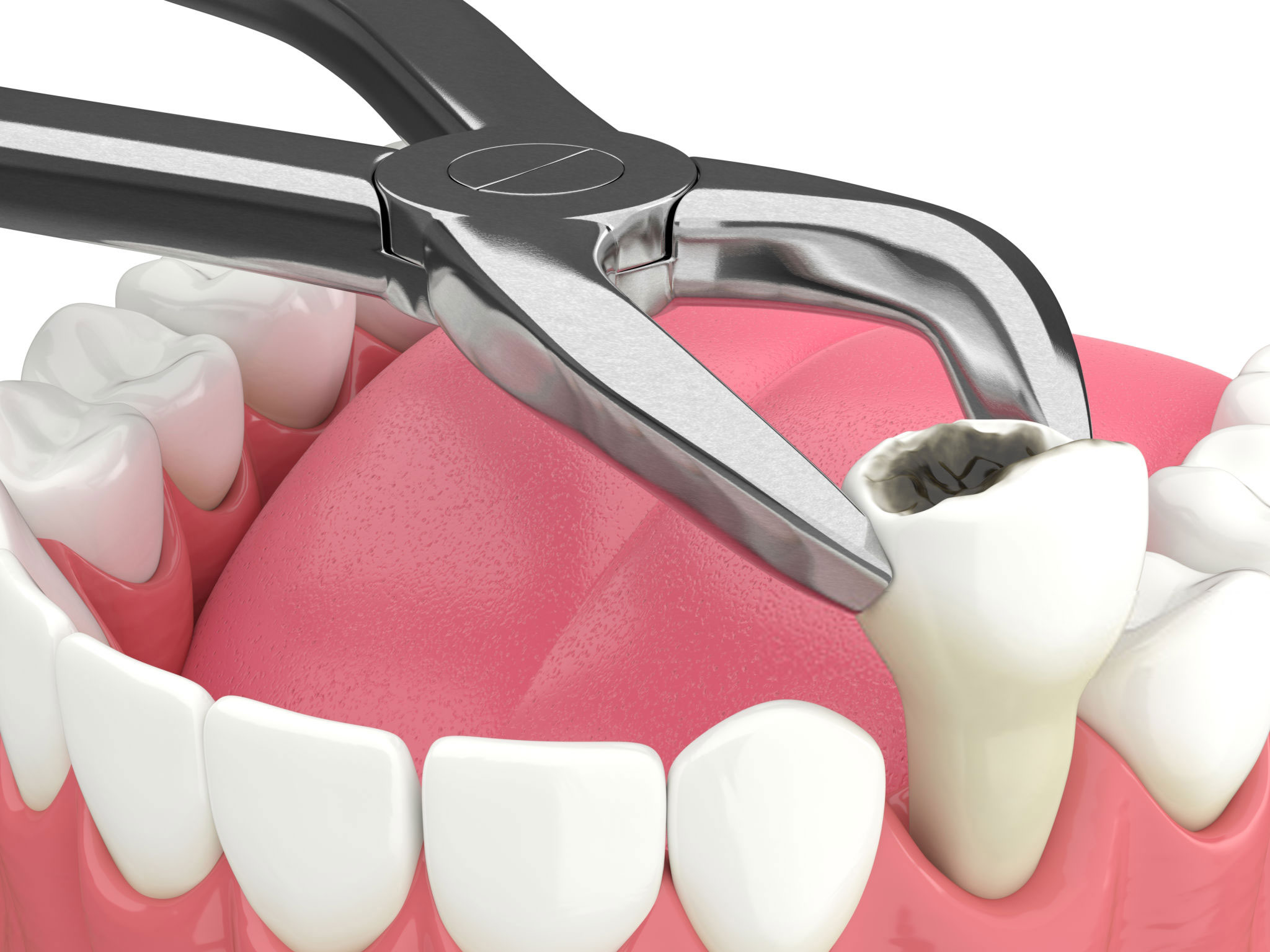Extractions
Dental Services
Make an Appointment
Contact or call us for appointments, dental emergencies and other requests.
Extractions, Wisdom Teeth, and Oral Surgery
We perform most dental surgery right here in our office, including extractions and surgery for dentures.
An extraction means to have a tooth removed, usually because of disease, trauma, or crowding. If you need an extraction, we will first numb the area to lessen any discomfort. Prior to performing treatment, Dr. Thomas will always thoroughly test the tissues surrounding the tooth or teeth to be extracted, in order to insure that the patient is profoundly numb. After the extraction, we will advise you of what post extraction regimen to follow. In most cases, a small amount of bleeding is normal. Your mouth will slowly fill in the bone where the tooth root was through the formation of a blood clot.

We perform many types of dental surgery in our office. These include:
Routine “Simple” Extractions
This type of extraction requires removal of the tooth, usually in one piece, with specialized dental surgical instruments.
Surgical Extractions
When a tooth is broken, brittle, or otherwise more difficult to access, Dr. Thomas may perform a surgical extraction. This typically includes the opening of a small window in your gum tissue, followed by removal of a small amount of bone surrounding your tooth and/or division of the tooth into smaller pieces. In this manner, the tooth can be removed with less pushing and pulling, which is more comfortable for the patient. After the tooth has been removed, Dr. Thomas may place some stitches that will dissolve in a few days.
Wisdom Tooth Extractions
Wisdom teeth, also referred to as third molars, get their name by being the last teeth to come in during young adulthood. As part of a dental visit, we will examine you to determine if your wisdom teeth are healthy and properly positioned. Every patient is unique, but in general, wisdom teeth may need to be removed when there is evidence or risk of changes in the mouth, such as pain, infection, cysts, tumors, damage to adjacent teeth, gum disease, or tooth decay (if it is not possible or desirable to restore the tooth). We may also recommend the removal of wisdom teeth as part of other treatment, such as when removal is part of an orthodontic, restorative, or periodontal treatment plan.
In addition, the condition of your mouth changes over time. Wisdom teeth that are not removed should continue to be monitored, because the potential for developing problems later on still exists. As with many other health conditions, as people age, they are at greater risk for health problems and that includes potential problems with their wisdom teeth. Regular dental visits are important so that we can evaluate not just your wisdom teeth but your overall oral health to help you prevent and manage dental disease and achieve optimal oral health.
Our approach to wisdom tooth removal will vary with the condition of your teeth. Some wisdom teeth will be fully erupted and in such cases removal is often routine or “simple.” However, many wisdom teeth are impacted, meaning that they don’t have enough room to emerge or grow normally. Part or all of an impacted wisdom tooth will be trapped in the jaw. These are referred to as “partial bony” or “complete bony” impactions. Removal of impacted wisdom teeth requires the creation of a small window in the gum and bone, through which the tooth can be removed as a whole, or in sections. The wound is then closed with dissolving stitches.
Pre-Prosthetic Surgery
Prior to the fabrication of dentures (both full and partial), it may be necessary to perform surgery. Such surgery may include multiple tooth extractions, re-contouring of the bone that surrounds your teeth (known as alveoloplasty) to make a more uniform ridge for your denture to rest upon, and the removal of bony overgrowths (known as exostoses and tori), that might otherwise prevent the comfortable seating of a planned denture. We provide all of these services in our office.
